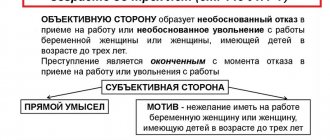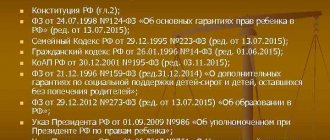Grounds for conducting a personal search
Before operating with this concept, it is necessary to find out what the legislation means by it. Its foundations are revealed in Art. 27.7 of the Code of Administrative Offenses of the Russian Federation, in accordance with it, this is an inspection of things on a person and with him. This is hand luggage (bags, briefcases, packages), luggage, hunting and fishing items, etc.
The citizen's consent is not required to carry out the procedure.
Personal search is an administrative procedural measure. The basis for its conduct is the commission of administrative offenses, information about the citizen’s possession of weapons, explosives, psychotropic and narcotic drugs.
Information must be obtained from reliable sources. They can be statements from individuals and legal entities, government bodies, police orientations.
Hand luggage inspection procedure.
A protocol must be kept in the presence of two witnesses or using video recording. If there is information that the person subjected to a personal search may have a weapon or show resistance, witnesses are not needed. They may also not be present if video surveillance or video recording is being carried out.
During this procedure, an examination of the body, clothing, and items in the citizen’s possession are examined. The integrity of things is not compromised. The citizen is examined, not searched. Everything discovered during the inspection is entered into the protocol. This should not just be a list, but a description of each item, indicating identification characteristics. If the violator is a minor or incompetent, then all actions are performed in the presence of legal representatives.
Personal search by the police - how to behave?
If you become aware that your personal search is planned, do not be nervous. You should not argue with a police officer about the grounds for a body search. Concentrate on the procedure and try to prevent violations of your rights. At the same time, quickly check your things: did they plant anything on you while they were taking you to the police department?
Remember! All violations committed are to your benefit - you will indicate them in the protocol.
Do not resist the policeman - this will only worsen your situation. A personal search can be carried out forcibly without your desire. Resistance during a search may be regarded as disobedience to a lawful request of a police officer. Separate administrative responsibility is provided for this.
When the police officer offers you to give up the things you have on you, agree. Maintain eye contact with witnesses. Make sure they are not distracted and ask for their attention if necessary - this is not a violation.
Disinterested witnesses are your only hope for a fair search; a lot depends on them.
Find out where you can put the things you have with you. Demand that there be sufficient empty space on the table. There should be no foreign objects where you place things. Carefully and slowly place the items you have on you on the table. Your actions must be clearly visible to those understood. I recommend commenting on your actions out loud: “My mobile phone,” “Cash in the amount of 5,000 rubles.” After the items are laid out, notify the police officer. The employee has the right to forcibly search you again to make sure that there is nothing else on you.
If you suddenly find items on your person that you did not have before, immediately report this so that witnesses can hear it.
Who has the right to conduct searches of citizens?
In Art. 27.2, 27.3 of the Code of Administrative Offenses provides a list of government bodies whose responsibilities include monitoring the implementation of legislation in various areas.
The following officials have the right to conduct inspections and draw up protocols:
- Police - upon detection of offenses provided for in paragraph 1, part 2, art. 28.3 of the Code of Administrative Offenses independently or when officials contact them, Art. 27.2, 27.3 Code of Administrative Offences.
- The National Guard, as well as departmental and non-departmental security subordinate to it.
- Bodies exercising control or supervision over the implementation of rules for the use of transport.
- Military traffic police - in case of violation of traffic rules by military drivers in transport of the Russian Armed Forces, the National Guard, civil defense troops, engineering, technical and road construction units.
- Bodies monitoring compliance with legislation on environmental protection, forestry, livestock farming, fisheries, and water resources.
- Border troops, bodies of the Ministry of Internal Affairs, military personnel and other persons entrusted with the responsibilities of protecting the state border.
- Border Troops - when identifying administrative offenses in internal sea waters.
- Customs authorities - in case of violation of Customs rules.
- Drug control authorities.
- Carrying out counter-terrorism operations and revealing violations of the law under Art. 20.27 Code of Administrative Offences.
- Bailiffs who ensure the established order in the courts.
- Migration authorities.
The performance of police duties is often associated with various risks. The use of physical force or even weapons may be required in a variety of situations - both to protect life or health, and, for example, to detain criminals, and therefore is the right of the police.
The list of cases when law enforcement officers have the right to use physical force, special means and firearms, as well as the procedure for their use, are clearly regulated by law.
A police officer has the right to use physical force only when non-forceful methods do not ensure the fulfillment of official duties, namely, if it is necessary to overcome opposition to the legal demands of a police officer (for example, when a police officer asks to clear part of the sidewalk for the passage of special vehicles), to stop an offense or crime, or to deliver offender to the office premises.
In addition, the employee has the right to use physical force in cases where the use of special means or firearms is permitted.
The police are armed with a large number of special equipment - from rubber sticks and gas canisters to water cannons and armored vehicles.
The list of situations in which a police officer can use special means:
- to repel an attack on a citizen or police officer;
- to suppress a crime or administrative offense;
- to suppress resistance to a police officer;
- to detain a person caught committing a crime and trying to escape;
- to detain a person if this person can offer armed resistance;
- for delivery to the police, escort and protection of detained persons, persons taken into custody, persons sentenced to imprisonment, persons subjected to administrative punishment in the form of administrative arrest, as well as for the purpose of stopping an escape attempt, if a person resists a police officer, causing harm to others or yourself;
- to release forcibly detained persons, seized buildings, premises, structures, vehicles and land plots;
- to suppress riots and other illegal actions that disrupt traffic, the operation of communications and organizations;
- to stop a vehicle whose driver has not complied with the police officer’s request to stop;
- to identify persons who commit or have committed crimes or administrative offenses;
- to protect protected objects, block the movement of groups of citizens committing illegal actions;
- in cases where a police officer is allowed to use firearms;
At the same time, a police officer is prohibited from using special means against women with visible signs of pregnancy, as well as persons with obvious signs of disability and minors, if they do not offer armed resistance and do not try to attack strangers or police in a group, or if such the attack threatens anyone's life or health. In some cases, the law provides for derogations from these restrictions.
Finally, the police also have the right to use firearms:
- to protect another person or oneself from an attack, if this attack involves violence dangerous to life or health;
- to suppress attempts to seize firearms, police vehicles, special and military equipment in service (support) of the police;
- to free hostages;
- to detain a person caught committing an act containing signs of a grave or especially grave crime against life, health or property, and trying to escape, if it is not possible to detain this person by other means;
- to detain a person offering armed resistance, as well as a person refusing to comply with a legal requirement to surrender weapons, ammunition, explosives, explosive devices, toxic or radioactive substances in his possession;
- to repel a group or armed attack on buildings, premises, structures and other objects of state and municipal bodies, public associations, organizations and citizens;
- to prevent the escape from places of detention of suspects and accused of committing crimes or the escape from convoy of persons detained on suspicion of committing a crime, persons against whom a preventive measure in the form of detention has been applied, persons sentenced to imprisonment, as well as to suppress attempts to forcefully release these persons.
- to stop a vehicle by damaging it, if the person driving it refuses to comply with the repeated demands of a police officer to stop and tries to escape, creating a threat to the life and health of citizens;
- to neutralize an animal that threatens the life and health of citizens and (or) a police officer;
- to destroy locking devices, elements and structures that prevent entry into residential and other premises;
- to fire a warning shot, sound an alarm, or call for help by firing a shot upward or in another safe direction.
The law prohibits the use of lethal weapons against women, persons with obvious signs of disability, and minors when their age is obvious or known to the police officer, except in cases where these persons offer armed resistance, commit an armed or group attack, which is threatened by someone else. either life or health.
It is also prohibited to use firearms in large crowds of citizens if this could result in injury to bystanders.
The law assumes that if a police officer does not have special equipment or weapons, then in a state of necessary defense, in case of emergency or when detaining a criminal, he has the right to use any improvised means or other weapons that are not in service with the Ministry of Internal Affairs.
Exceeding authority by a police officer when using physical force, special means or firearms entails liability established by law.
The procedure for using physical force, special means and firearms
Procedure for carrying out the procedure by police officers
A personal search is carried out by officials authorized to perform this action and who have the right to draw up a protocol.
Mandatory conditions for production are the following:
- The searched citizen must be explained the reason (basis) for this procedure.
- Invite him to provide for examination documents, things and objects with which administrative offenses were committed.
- The search of a citizen is carried out by a police officer of the same gender as him.
- Two witnesses are invited. Their role can be played by people who must meet the following requirements: be over 18 years of age, have no interest in the case, sober, sane, not part of the squad, not familiar with the police, of the same sex as the suspect.
- The inspection procedure must be carried out in premises that meet sanitary requirements and exclude access by unauthorized persons.
- The person being searched is ensured: safety, health, dignity, confidentiality of personal life is guaranteed, except for cases provided for by law.
- When performing an inspection, if there is information about the presence of explosives or weapons, the procedure is carried out in the absence of witnesses. When filming video, the presence of the latter may also not be necessary.
- A protocol is drawn up in which all information received is entered.
- Discovered items to which all established methods of recording material evidence have been applied (description, measurement, photography, video recording) are confiscated. They are packaged, sealed and attached to the case as evidence.
- What is written is read aloud. The suspect and witnesses are asked if they have any questions. If not, then a record of this is entered into the protocol, which is signed by the citizen being examined and by witnesses. One copy is given to the suspect.
Personal search by police.
There are times when police want to conduct a personal search right on the street. Here it is necessary to require the invitation of two witnesses.
Protocol for personal search of a person under the Code of Administrative Offenses
A protocol is drawn up about a personal search, search of things in the person’s possession, or a corresponding entry is made in the protocol on delivery or in the protocol on administrative detention. The protocol on a personal search, examination of things in the possession of an individual, indicates the date and place of its preparation, position, surname and initials of the person who compiled the protocol, information about the individual subjected to personal search, the type, quantity, and other identifying characteristics of things , including the type, brand, model, caliber, series, number, other identification features of the weapon, the type and quantity of ammunition, the type and details of documents found during the inspection and carried by the individual.
In the protocol on a personal search, examination of things in the possession of an individual, a record is made of the use of photography and filming, and other established methods of recording material evidence. Materials obtained during a personal search, examination of things in the possession of an individual, using photography and filming, and other established methods of recording material evidence, are attached to the corresponding protocol.
The protocol on a personal search, examination of things in the possession of an individual, is signed by the official who compiled it, the person against whom proceedings are being conducted for an administrative offense, or the owner of the things subjected to search, by attesting witnesses in the case of their participation. If the person against whom the proceedings are being conducted, the owner of the things subjected to inspection, refuses to sign the protocol, a corresponding entry is made in it. A copy of the protocol on the personal search, the search of things in the possession of an individual, is handed over to the owner of the things subjected to search, at his request.
Download form:
Personal search protocol
Verification of documents
This procedure is carried out if there are reasons to believe that a citizen has committed an offense or to suspect that he is wanted.
Reasons for this:
- The person is caught in the act of committing an offense.
- Eyewitnesses point to this citizen.
- Traces of a crime were found on clothing or body.
- There are similarities with a wanted criminal.
- Evidence from outdoor surveillance cameras.
- Inappropriate behavior. The man looks around, runs away from the police, etc.
Checking a citizen's documents.
What documents do you need to have with you as identification (one is enough):
- civil, foreign or diplomatic passport;
- military ID;
- birth certificate;
- seaman's passport;
- service ID.
How should documents be checked?
The activities of the police are regulated by the federal law “On Police” of February 7, 2011 N 3-FZ, departmental regulations and official regulations. These documents contain the grounds for various actions that a police officer has the right to perform in relation to a citizen. Verification of identity documents is one of them and can be carried out when:
- there is information from which it follows that the person is suspected of committing a crime or is wanted;
- there is a reason to initiate a case of an administrative offense or grounds for administrative detention;
- a citizen carries out activities, the verification of permits for which is entrusted to police officers (clause 2, part 1, article 13 of the Federal Law of 02/07/2011 N 3-FZ “On the Police”).
The absence of a passport or other identification document in itself cannot be a basis for detention, since the obligation to have a passport established by the Regulations on the Passport of a citizen of the Russian Federation does not mean that he must always carry it with him. This is also not provided for by other legislative acts.
When contacting a citizen, a police officer is required to state his position, surname and present his service identification (upon request). Only after completing these actions can he communicate the reason and purpose of his appeal (clause 4, article 5 of the Federal Law of 02/07/2011 No. 3-FZ “On the Police”).
Who cannot be inspected
According to federal laws, a list of persons who are not subject to personal search is established:
- presidents of the country: current and former;
- members of the Federation Council and State Duma deputies;
- judges and arbitration assessors;
- prosecutors and employees of the Investigative Committee;
- FSB officers during the execution of a task;
- State security officers during the performance of their duties;
- Commissioner for Human Rights;
- citizens of other countries with diplomatic immunity.
But there are exceptions - this is a mandatory pre-flight inspection in which everyone participates. According to paragraph 3 of Art. 85 of the Air Code, citizens who have not passed it are not allowed on board the ship.
Features of administrative detention
This is a short-term interim measure, which takes place in exceptional cases in accordance with Art. 27.3 Code of Administrative Offences. She is preceded by delivery in order to be able to examine the suspect. It is used when a correct and quick investigation is necessary. The goal is to stop the offense when all measures of influence have been exhausted: persuasion, orders. If a citizen is law-abiding, then this measure does not apply to him.
Administrative detention procedure.
In accordance with Art. 27.4. The Code of Administrative Offenses of the Russian Federation draws up a protocol on administrative detention, which is issued at the request of the offender. The detention period is 3 hours. It is calculated from the moment the offense was committed, and not from the time of delivery to the police.
Actions if the duty officer refuses to accept an application
Based on Order of the Ministry of Internal Affairs of Russia No. 140 dated March 1, 2012, territorial police stations must accept, register and consider all applications, regardless of citizenship.
What to do if you are refused:
- Warn the police officer on duty that his actions are unlawful and you will be forced to appeal his refusal. Speak politely, without emotion.
- Rewrite the badge details.
- Ask to invite the chief of police or any official in his place.
- If the duty officer did not do this, then call the hotline at 112 in his presence. Explain that they are refusing to accept your application.
You can call the prosecutor's office. It is advisable to make a video recording. If this does not help, then write a complaint to a higher authority of the Ministry of Internal Affairs.
❗ What to do if human rights are violated during inspection
If a police officer refuses to introduce himself and present documents, a citizen has the right to complain about him by calling 112. The officer on duty should be informed that an unknown person stopped you on the street and tried to check your documents.
If the police violate the inspection regulations, the citizen has the right to complain to the prosecutor's office or the police's own security department (based on Article 53 of the Police Law). The complaint must describe in as much detail as possible what rights of the citizen were violated during the search: for example, search without drawing up a protocol, detention without reason, extortion, etc.
At a minimum, a citizen can demand an apology for rude treatment or disclosure of information about private life in writing or other form (based on Part 3 of Article 9 of the Police Law). The police officer's actions will be investigated and he may face reprimand or even dismissal.
A citizen also has the right to go to court with a demand to declare the actions of the police officer illegal and to pay compensation.
Emergency number 112. When to call and how to help
Read
How can a person who insults the authorities be punished?
More details
Why you can't be rude to the police. Responsibility for resistance
Look
Actions when extorting a bribe
This illegal behavior by police officers is common. If you have not committed any offenses, then try to prevent extortion. To do this, take out your phone, turn on the video recording or voice recorder. This sometimes helps. Or make a discreet recording on video or a voice recorder, it will be useful to you.
Actions when extorting a bribe.
Further actions will be as follows:
- Use the hotline by calling 8-800-250-02-35 and reporting that a bribe is being extorted from you.
- Write a statement to the Internal Security Service, send it by registered mail with notification. Or better yet, take it yourself. Remember that giving a bribe is the same crime as receiving it. Therefore, to avoid liability, you should contact law enforcement agencies.
- You can file a complaint with the prosecutor's office.
Difference between inspection and inspection
An inspection is an administrative and preventive measure. It differs from inspection by the main goals:
- It is carried out to prevent citizens from committing actions that could lead to an accident or emergency.
- Is a warning against committing a violation of the law. This measure is preventive in nature.
Therefore, the main difference between the procedures is the administrative offense committed or its prevention.
The basis for conducting a personal inspection may be a violation of the rules for citizens to be in crowded places. These could be airports, train stations, stadiums, premises for entertainment events, etc. Drawing up a protocol on personal inspection is not provided for by law, but during an inspection it is mandatory.




